×
![]()
biella1: Instance-to-Instance Comparison Results
| Type: | Instance |
| Submitter: | Double-Click SAS |
| Description: | Crew scheduling instance |
| MIPLIB Entry |
Parent Instance (biella1)
All other instances below were be compared against this "query" instance.  |
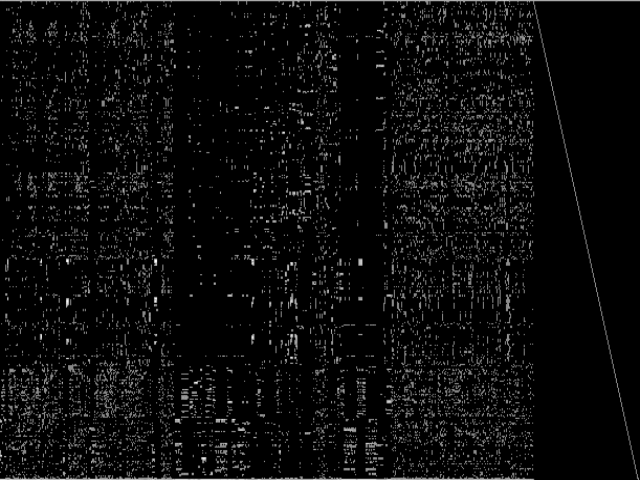 |
 |
 |
 |
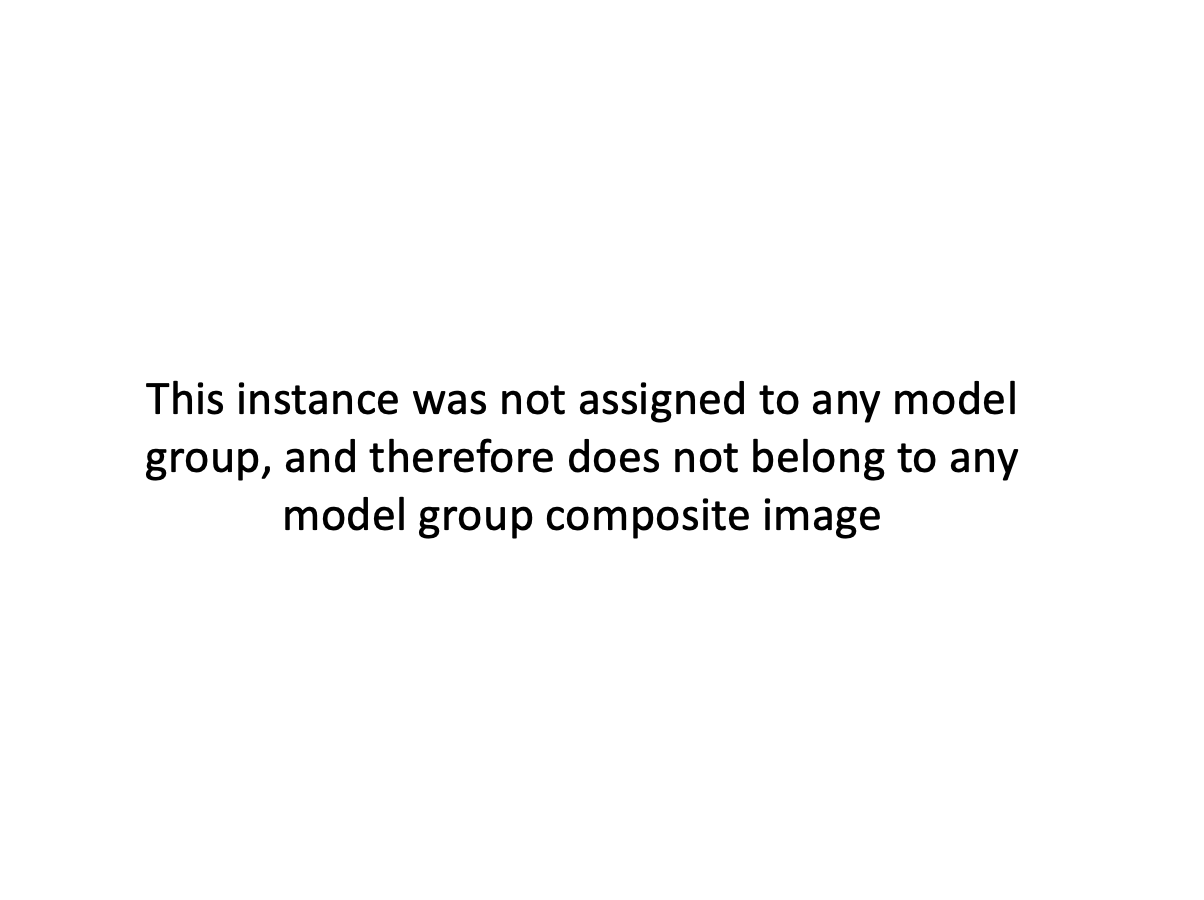 |
|
Raw
This is the CCM image before the decomposition procedure has been applied.
|
Decomposed
This is the CCM image after a decomposition procedure has been applied. This is the image used by the MIC's image-based comparisons for this query instance.
|
Composite of MIC Top 5
Composite of the five decomposed CCM images from the MIC Top 5.
|
Composite of MIPLIB Top 5
Composite of the five decomposed CCM images from the MIPLIB Top 5.
|
Model Group Composite Image
Composite of the decomposed CCM images for every instance in the same model group as this query.
|
MIC Top 5 Instances
These are the 5 decomposed CCM images that are most similar to decomposed CCM image for the the query instance, according to the ISS metric.  |
Decomposed
These decomposed images were created by GCG.
|
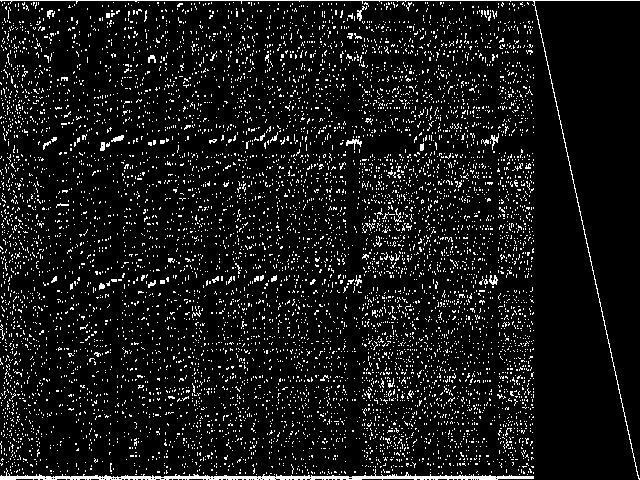 |
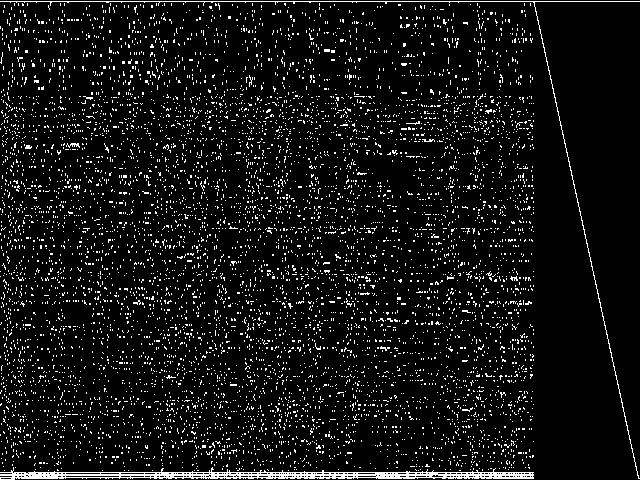 |
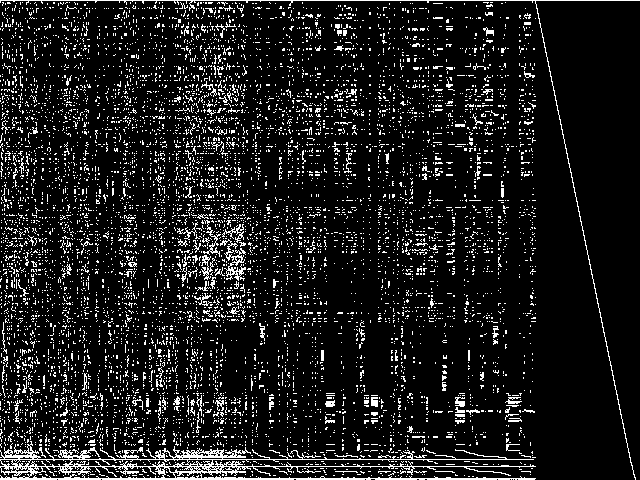 |
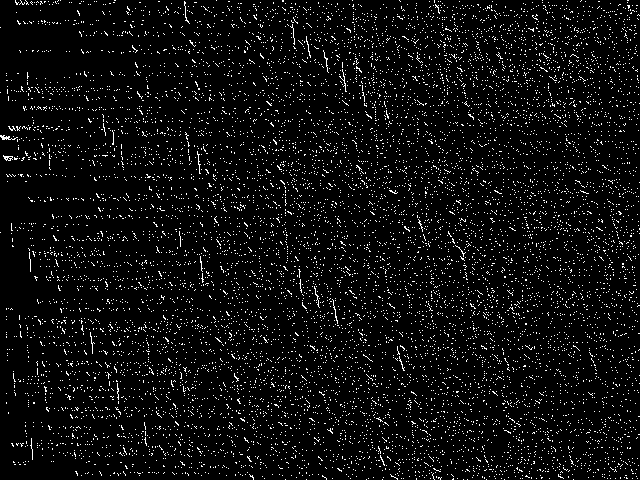 |
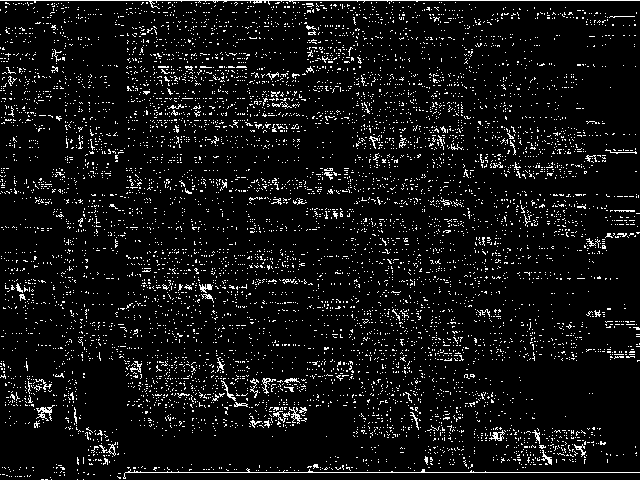 |
| Name | dc1c [MIPLIB] | trento1 [MIPLIB] | dolom1 [MIPLIB] | pythago7825 [MIPLIB] | core2586-950 [MIPLIB] | |
|
Rank / ISS
The image-based structural similarity (ISS) metric measures the Euclidean distance between the image-based feature vectors for the query instance and all other instances. A smaller ISS value indicates greater similarity.
|
1 / 0.802 | 2 / 0.803 | 3 / 0.926 | 4 / 1.143 | 5 / 1.145 | |
|
Raw
These images represent the CCM images in their raw forms (before any decomposition was applied) for the MIC top 5.
|
 |
 |
 |
 |
 |
MIPLIB Top 5 Instances
These are the 5 instances that are most closely related to the query instance, according to the instance statistic-based similarity measure employed by MIPLIB 2017  |
Decomposed
These decomposed images were created by GCG.
|
 |
 |
 |
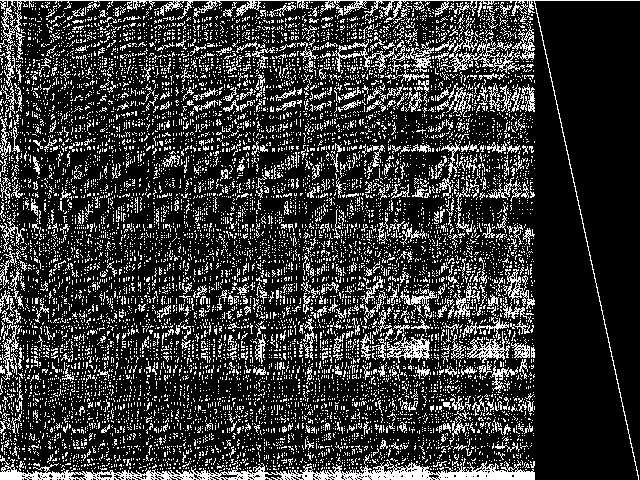 |
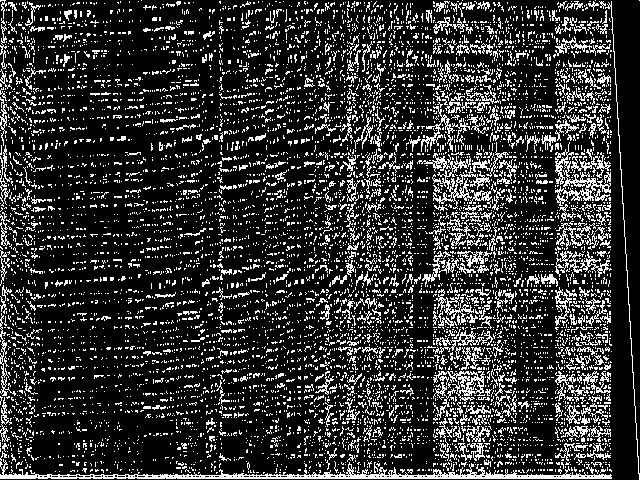 |
| Name | dc1c [MIPLIB] | trento1 [MIPLIB] | dolom1 [MIPLIB] | nsr8k [MIPLIB] | dc1l [MIPLIB] | |
|
Rank / ISS
The image-based structural similarity (ISS) metric measures the Euclidean distance between the image-based feature vectors for the query instance and all model groups. A smaller ISS value indicates greater similarity.
|
1 / 0.802 | 2 / 0.803 | 3 / 0.926 | 8 / 1.211 | 63 / 1.637 | |
|
Raw
These images represent the CCM images in their raw forms (before any decomposition was applied) for the MIPLIB top 5.
|
 |
 |
 |
 |
 |
Instance Summary
The table below contains summary information for biella1, the five most similar instances to biella1 according to the MIC, and the five most similar instances to biella1 according to MIPLIB 2017.
| INSTANCE | SUBMITTER | DESCRIPTION | ISS | RANK | |
|---|---|---|---|---|---|
| Parent Instance | biella1 [MIPLIB] | Double-Click SAS | Crew scheduling instance | 0.000000 | - |
| MIC Top 5 | dc1c [MIPLIB] | Double-Click SAS | Crew scheduling instance. This problem was solved on ISM supercomputer Fujitsu PRIMERGY RX200S5 (http://www.ism.ac.jp/computer_system/eng/sc/index.html) by ParaSCIP in approximately 1100 hours with 14 times restarted 15 jobs. | 0.801579 | 1 |
| trento1 [MIPLIB] | MIPLIB submission pool | Imported from the MIPLIB2010 submissions. | 0.802628 | 2 | |
| dolom1 [MIPLIB] | Double-Click SAS | Crew scheduling instance. Solved with ParaSCIP with SCIP 3.0.1 linked to CPLEX 12.5 as an LP solver on HLRN III with 12288 cores in two runs First run found a feasible solution whose objective function value is 6615265.0000. Giving the feasible solution, the second run solved the instance in 13684.7671 sec. | 0.926130 | 3 | |
| pythago7825 [MIPLIB] | Felix J. L. Willamowski | 2-coloring of Pythagorean triples | 1.143015 | 4 | |
| core2586-950 [MIPLIB] | A. Caprara, M. Fischetti, P. Toth | Set covering instance coming from Italian railway models | 1.144924 | 5 | |
| MIPLIB Top 5 | dc1c [MIPLIB] | Double-Click SAS | Crew scheduling instance. This problem was solved on ISM supercomputer Fujitsu PRIMERGY RX200S5 (http://www.ism.ac.jp/computer_system/eng/sc/index.html) by ParaSCIP in approximately 1100 hours with 14 times restarted 15 jobs. | 0.801579 | 1 |
| trento1 [MIPLIB] | MIPLIB submission pool | Imported from the MIPLIB2010 submissions. | 0.802628 | 2 | |
| dolom1 [MIPLIB] | Double-Click SAS | Crew scheduling instance. Solved with ParaSCIP with SCIP 3.0.1 linked to CPLEX 12.5 as an LP solver on HLRN III with 12288 cores in two runs First run found a feasible solution whose objective function value is 6615265.0000. Giving the feasible solution, the second run solved the instance in 13684.7671 sec. | 0.926130 | 3 | |
| nsr8k [MIPLIB] | MIPLIB submission pool | Crew scheduling instance | 1.210959 | 8 | |
| dc1l [MIPLIB] | Double-Click SAS | Crew scheduling instance | 1.636803 | 63 |
biella1: Instance-to-Model Comparison Results
| Model Group Assignment from MIPLIB: | no model group assignment |
| Assigned Model Group Rank/ISS in the MIC: | N.A. / N.A. |
MIC Top 5 Model Groups
These are the 5 model group composite (MGC) images that are most similar to the decomposed CCM image for the query instance, according to the ISS metric.  |
These are model group composite (MGC) images for the MIC top 5 model groups.
|
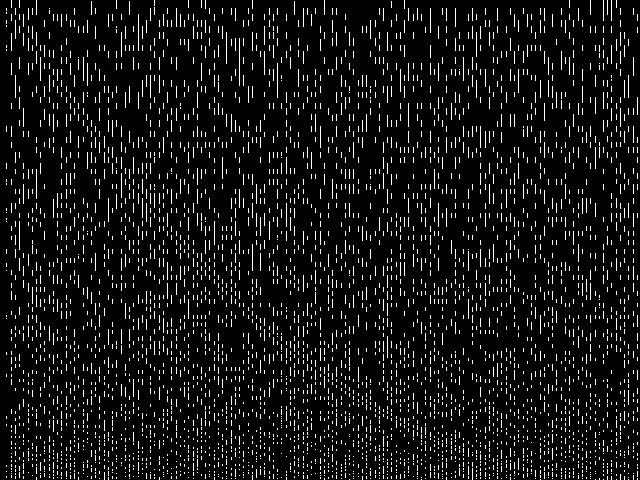 |
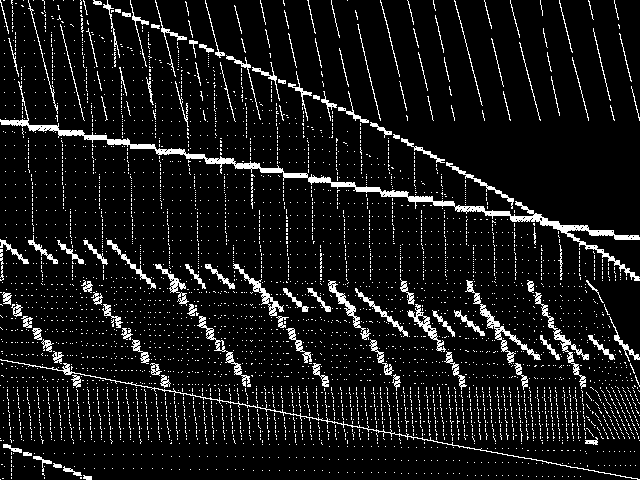 |
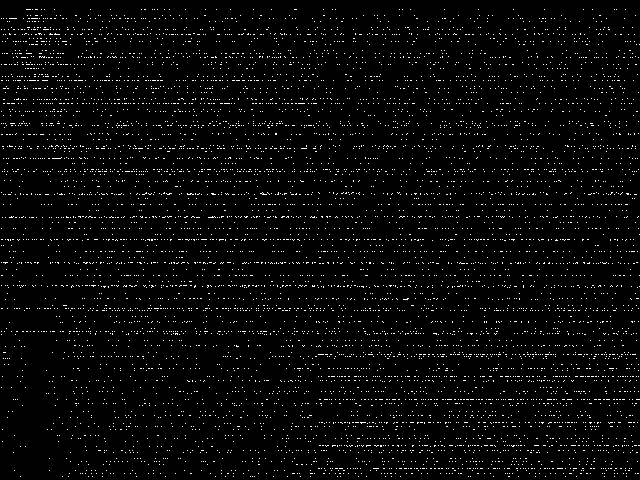 |
 |
 |
| Name | 2hopcds | neos-pseudoapplication-103 | f2gap | iis | mod | |
|
Rank / ISS
The image-based structural similarity (ISS) metric measures the Euclidean distance between the image-based feature vectors for the query instance and all other instances. A smaller ISS value indicates greater similarity.
|
1 / 1.421 | 2 / 1.604 | 3 / 1.605 | 4 / 1.618 | 5 / 1.653 |
Model Group Summary
The table below contains summary information for the five most similar model groups to biella1 according to the MIC.
| MODEL GROUP | SUBMITTER | DESCRIPTION | ISS | RANK | |
|---|---|---|---|---|---|
| MIC Top 5 | 2hopcds | Austin Buchanan | A problem in wireless networks. The objective is to select a minimum number of relay nodes so that any two nonadjacent nodes can communicate by way of the chosen relay nodes in at most s hops, where s is a problem input. The 2-hop case of this problem can be formulated as a set cover/hitting set problem with n binary variables and n^2 constraints: _{ k N(i) N(j) } x_k 1 for nonadjacent node pairs {i,j}. Despite the formulation's simplicity, models with as few as 120 variables are left unsolved after one hour using Gurobi 7.0.2. | 1.420611 | 1 |
| neos-pseudoapplication-103 | Hans Mittelmann | Collection of anonymous submissions to the NEOS Server for Optimization | 1.603637 | 2 | |
| f2gap | Salim Haddadi | Restrictions of well-known hard generalized assignment problem models (D10400,D20400,D40400,D15900,D30900,D60900,D201600,D401600,D801600) | 1.605034 | 3 | |
| iis | Marc Pfetsch | 23 "middlehard" Set-Covering Models for MIPLIB: they have a small number of variables compared to the number of constraints and CPLEX 12.1 needs about one hour to solve them.For more information, have a look into the readme file which explains how the models can be created. | 1.618434 | 4 | |
| mod | MIPLIB submission pool | Imported from the MIPLIB2010 submissions. | 1.652558 | 5 |

